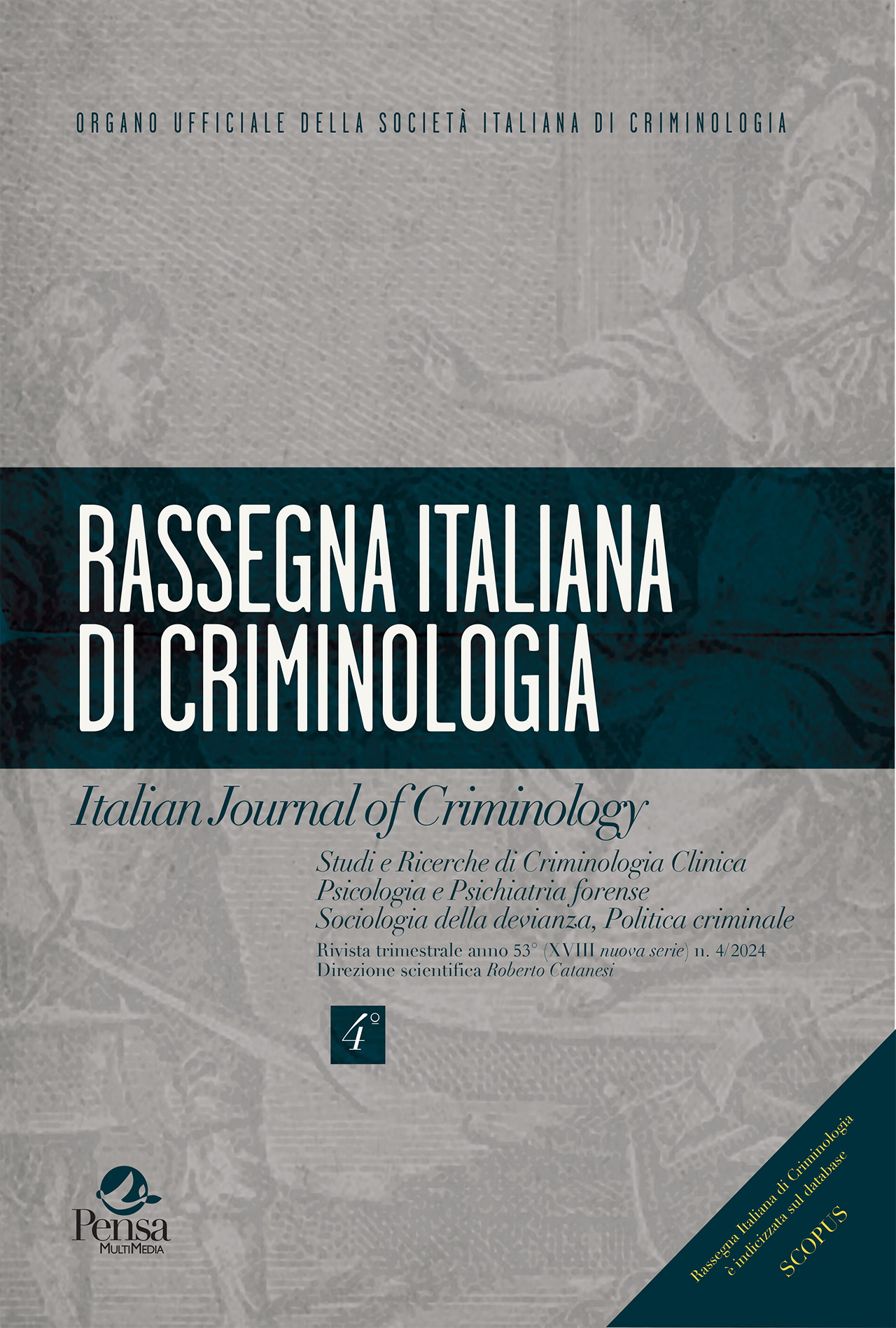Religiousness and psychopathological risk: considerations from a forensic cases study
DOI:
https://doi.org/10.7347/RIC-042024-p332Abstract
Through the analysis of four expert cases, this study aims to illustrate how the combination of certain religious beliefs, sub-culture of belonging and so-called types of personality pre-morbid can influence individual and group conduct and assume importance in Forensic Medicine. Where the religious dimension is deprived of its authentic anthropological content, it can be transformed into a phenomenon that is not only pathogenic but also at least deviant, if not even criminogenic. In the first case, the technical question concerns the identification of the legal entity to which to entrust a minor, a seriously autistic child belonging to a parental nucleus undergoing separation. This nucleus is conflictual and presents a maladaptive religious dimension. The second
case raises the problem of evaluating the practical suitability for the religious life of a man who, after experiencing an acute psychotic onset and the development of bipolar disorder in the third decade of life, not only to introduces the cause of marriage nullity but intends to become priest. The third case concerns the complaint by a Franciscan nun in the fourth decade of her life of alleged sexual abuse perpetrated against her by two friars and two priests. The fourth case poses the problem of assessing the existence or not of a mental
disorder of the protagonist as the same, under the particular irrational ways of living the faith (shared by the whole family). It leads her to live for more than a year with the mummified corpses of the two sisters. Paying attention to the effects that the synergy between abnormal religiosity and obvious psychopathological risk factors can have on behaviour could be very useful in the diagnosis, prognosis and therapy of these conditions, as well as in the prevention of deviant and criminal behaviours related to them.
##submission.downloads##
Pubblicato
Fascicolo
Sezione
Licenza
Copyright (c) 2025 Cristiano Barbieri, Maria Grazia Violante, Roberta Risola, Kimberly Pagani, Ignazio Grattagliano, Anna Cassano, Maria Grazia Violante, Roberto Catanesi

TQuesto lavoro è fornito con la licenza Creative Commons Attribuzione 4.0 Internazionale.





